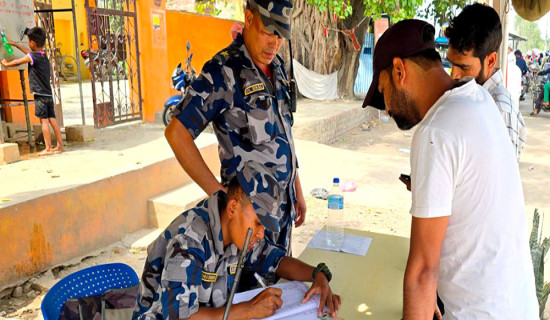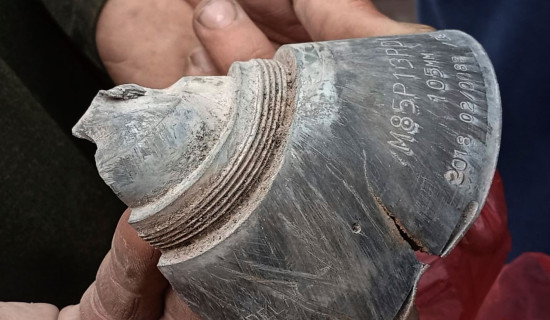- Monday, 12 May 2025
‘Earthquake did not recognise district boundaries, but govt did’
The earthquake that devastated Jajarkot and Rukum West on November 3 also affected the Darma Rural Municipality in Salyan district. Here, the quake destroyed over 1,000 houses and displaced 6,318 people. The rural municipality now has the responsibility to provide relief to the earthquake victims and ensure they have some sort of a roof over their heads for the winter.
Nim Bahadur KC of CPN (Maoist Centre), currently serving his second term as the chairman of Darma Rural Municipality, says he will do everything he can to fulfil this responsibility and push post-quake recovery. He said this in the conversation he had with The Rising Nepal's Salyan correspondent Pratik Ichchhuk Sharma. Excerpts:
How much damage has the earthquake of November 3 caused in your rural municipality?
Almost as much as the epicentre in Jajarkot. A total of 1,179 houses have been destroyed while 1,081 houses have been partially damaged. The quake also damaged 21 community schools, five health institutions and two ward offices.
Two people died in our rural municipality while eight sustained injuries.
How is the situation here after the earthquake?
People are afraid to stay indoors. That is why almost everyone is living in makeshift shelters made with tents, tarpaulins and other local resources. The increasing winter cold has started affecting people's health. We are trying to mobilise health workers and volunteers and utilise available options to treat the sick but we do not have sufficient resources. We are barely able to care for pregnant women, infants, senior citizens, patients with chronic illnesses and people with disabilities. There is a severe shortage of tents, food, clothes and medicine. The government, donors and media, no one is paying attention to the plight of Darma residents. The earthquake did not recognise district boundaries but our compassion and support seem to have. However, we are trying to do the best we can with the limited aid we have received.
Are schools and health centres still operational?
Darma has 36 schools. Of them, nine have been damaged beyond repair while 12 are partially damaged. Some schools that got tents have been able to make temporary classrooms but many schools have not. It is the same with health centres and ward offices. Service delivery has been greatly affected.
How do you plan to help the earthquake victims of this rural municipality get immediate relief and support post-quake reconstruction?
We have set up temporary tented shelters in schools, health centres and ward offices, and have moved people into safe buildings.
We have also prioritised pregnant women and new mothers, people living with disabilities, senior citizens, people with chronic illnesses, single women, Dalits and poor families in relief distribution. In addition to tents and tarpaulins, we have distributed blankets, mattresses, warm clothes and food items received from the federal and provincial governments, the District Coordination Committee, the District Disaster Management Committee and various government and non-government organisations.
For long-term reconstruction, we plan to mobilise geologists and engineers to engage people in earthquake awareness and preparedness campaigns and to involve them in the construction of quake-resilient houses.
What problems would you say the rural municipality suffers from?
The main problem faced by local levels like Darma, which have little internal income, is the reduction in the amount provided under federal grants. We also do not receive even 50 per cent we should under the present revenue-sharing system.
Likewise, the fiscal and administrative federalism envisioned by the constitution has not yet been implemented, laws and regulations vital to our functioning have not been enacted and a large share of the national budget still remains concentrated around the federal government. This has made it near impossible to meet people's needs and aspirations.
Budgets for programmes in agriculture, irrigation, drinking water, education, sports, literature, culture, tourism, health and other related sectors should be transferred to the local levels for direct implementation.
As it stands, we do not have the budget to upgrade roads, expand access to electricity, boost agricultural productivity and marketing and create employment opportunities.
Have you coordinated with the federal and provincial governments to find solutions?
We have. And the lawmakers and ministers are taking initiatives to support us in our development. But the contractors do not complete work in time.
Time and again, we also draw authorities' attention to the legal and policy hurdles preventing us from working to our full capacity. But not much has been done to remove these hurdles.
Given all these challenges, what have you been able to do and what do you plan to do in your remaining time in the office?
We have been able to put our plan to make Darma a hub for milk production into action. What started as a small project in one locality has now expanded to three wards and we want to expand it still to cover the entire rural municipality. We have been able to improve the condition of our roads. We are working to give every household in our rural municipality access to electricity.
Furthermore, under our 'One Home, One Job' plan, we want to train those currently unemployed and give them the skills necessary to become self-employed.
To improve the quality of education, we hope to link our curriculum with production, make it more pupil-oriented and introduce a local curriculum.
The local government was able to serve the people well during the COVID-19 pandemic and natural disasters. We plan to continue this and make our services more effective and efficient.



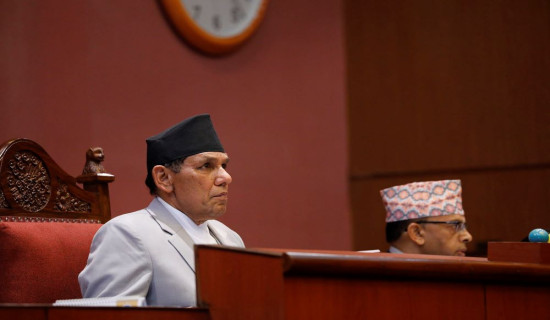
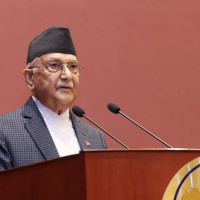
-square-thumb.jpg)
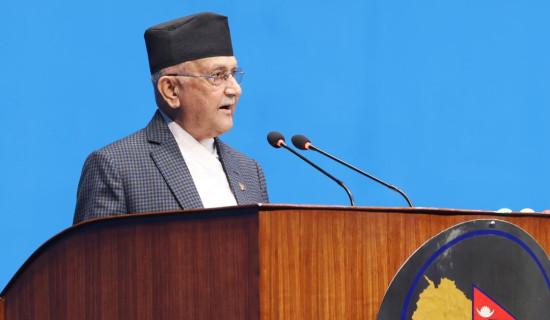
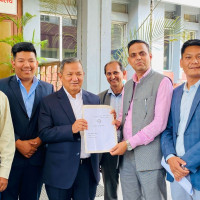
-square-thumb.jpg)



